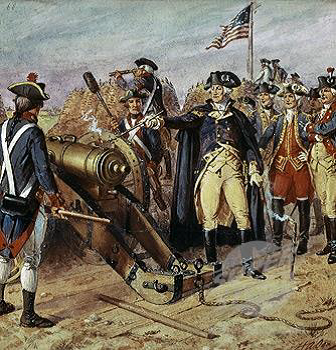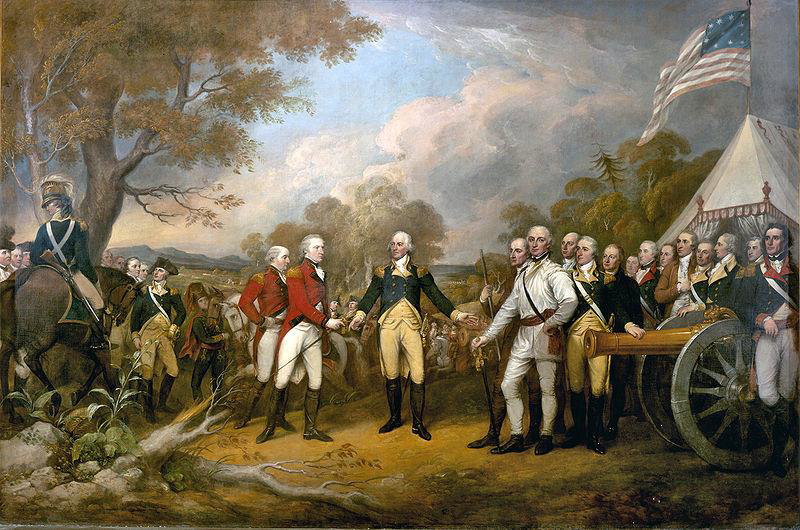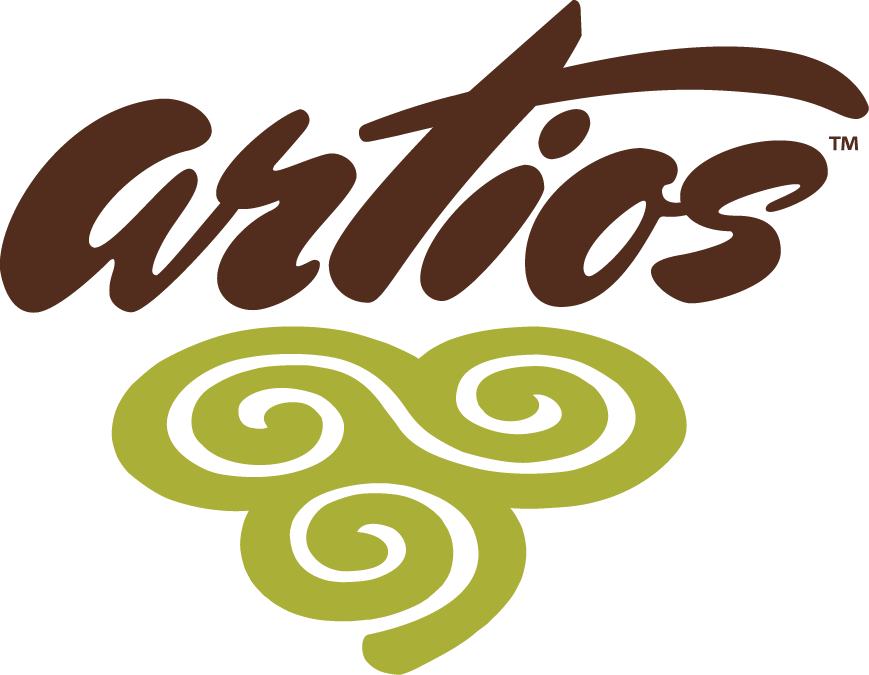[precontent]
[one_third]
Unit 18: The War of Independence, Part II
[/one_third]
[two_third_last]

[/two_third_last]
[/precontent]
[three_fourth]
[box]
[box_header]
Unit 18 [flag bg_color=”#d6e3bc” text_color=”#9d241a”]High School[/flag]
[/box_header]
[box_content]
Unit Overview
- Subjects Covered
- Grammar, Literature, Composition, History
- Time Period
- Reformation and Revolutions
- Grade Level
- High School: 9 – 12
- Civilization
- English and American
- Literature
- Autobiography of Benjamin Franklin – by Benjamin Franklin
[/box_content]
[box_content]
 Unit Description
Unit Description
“This period of the war was one of discontent in both the army and in Congress, and was seized upon by ambitious and designing men as an opportune time to molest and annoy the commander-in-chief…” – William M. Davidson
[/box_content]
[box_content]
Leading Ideas and Biblical Principles
[list type=”arrow”]
- History is HIS Story – God’s story of love, mercy, and redemption through Christ.
- He made known to us the mystery of his will according to his good pleasure, which he purposed in Christ, to be put into effect when the times reach their fulfillment—to bring unity to all things in heaven and on earth under Christ. — Ephesians 1:9-10
- God’s providential hand governs and times all events and provides for His Creation according to His plan and purposes.
- The God who made the world and everything in it is the Lord of heaven and earth and does not live in temples built by human hands. And he is not served by human hands, as if he needed anything. Rather, he himself gives everyone life and breath and everything else. From one man he made all the nations, that they should inhabit the whole earth; and he marked out their appointed times in history and the boundaries of their lands. God did this so that they would seek him and perhaps reach out for him and find him, though he is not far from any one of us.- Acts 17: 24 – 27
- Godly leadership and servanthood are necessary for one to be a true reforming influence.
- Whoever wants to become great among you must be your servant, and whoever wants to be first must be your slave—just as the Son of Man did not come to be served, but to serve, and to give his life as a ransom for many..- Matthew 20:26 – 28
- God raises up and removes leaders.
- He changes times and seasons; he deposes kings and raises up others. He gives wisdom to the wise and knowledge to the discerning..- Daniel 2:21
[/list]
[/box_content]
[/box]
[box]
[box_header]
Unit 18 Resources: [flag bg_color=”#d6e3bc” text_color=”#9d241a”]High School[/flag]
[/box_header]
[box_content]
[button id=”1″ link=”https://www.artioshcs.com/wp-content/uploads/2013/12/Early-Mod-Unit-18-HS-The-War-of-Independence2C-Part-II-PRINT-26-WWW.pdf” linking=”new-window” size=”medium” type=”simple” title=”unit”]Download Unit[/button]
[button id=”1″ class=”1″ link=”http://upload.wikimedia.org/wikipedia/commons/thumb/3/38/Viajes_de_colon_en.svg/800px-Viajes_de_colon_en.svg.png” linking=”new-window” size=”medium” type=”simple” title=”maps”]Download Maps[/button]
[button id=”1″ link=”http://www.phschool.com/atschool/ahon/history_interactive/mvl-1021/common_player.html” linking=”new-window” size=”medium” type=”simple” title=”maps”]Interactive Map[/button]
[tabs type=”simple” position=”top-left”]
[tab_title]Lesson 1: History[/tab_title]
[tab_content]
Lesson One Assignments:
- Review the discussion questions, then read the article: Events of 1778-1780, pages 4-11.
- Narrate about today’s reading using the appropriate notebook page. Be sure to answer the discussion questions and include key people, events, and dates within the narration.
- Be sure to visit www.ArtiosHCS.com for additional resources.
Lesson One Discussion Questions:
- Who is considered the greatest diplomat of the Revolution?
- Who was the French king in 1778 (research outside of your assigned reading)?
- Describe the importance of John Paul Jones.
- What is the significance of the contributions of Colonel George Rogers Clark?
- Who was Lighthouse Harry? Who would be his famous future relative (research outside of your assigned reading)?
- What did the Tories stand for?
- Describe the life and character of Benedict Arnold.
[/tab_content]
[tab_title]Lesson 2: History[/tab_title]
[tab_content]
Lesson Two Assignments:
- Review the discussion questions and vocabulary, then read the article: Events from 1781 to the end of the War, pages 13-18.
- Narrate about today’s reading using the appropriate notebook page. Be sure to answer the discussion questions and include key people, events, and dates within the narration.
- Define the vocabulary words in the context of the reading and put the word and its definition in the vocabulary section of your history notebook.
- Be sure to visit www.ArtiosHCS.com for additional resources.
Lesson Two Discussion Questions:
- How did the British Parliament and King George react to the defeat at Yorktown?
- What was the Treaty of Paris and what provisions did it contain?
- What were the financial effects of the war on the United States?
- Who composed a plan to eliminate the debt from the war?
[/tab_content]
[tab_title]Literature[/tab_title]
[tab_content]
Literature Assignments
- In this unit you will write an autobiographical essay about your experience practicing the virtues. Why you are writing this essay? You are writing this essay to detail your experience working on the “arduous project of arriving at moral perfection.” What to include in your essay:
Introduction that introduces the virtues chosen by giving a definition and telling how you planned to practice the virtues.
Body paragraphs that discuss and illustrate the virtues. Each paragraph should discuss one virtue and give details about how you chose to practice the virtue, how you tracked your progress, what changes you noticed, and whether you will continue to practice this virtue.
Conclusion that includes a summary of your experience and compares your past self to your present self.
- Write the essay described above and be sure to:
- ▪ Detail your experience practicing the virtues.
- Early Modern: High School
- Unit 18: The War of Independence, Part II – Page 3
- ▪ Include the information you kept in your journal focusing on how this experience changed you and any changes you noted about others.
- Read Part Four of the Autobiography of Benjamin Franklin.
- ▪ Read through your essay and correct any grammatical or mechanical errors.
[/tab_content]
[tab_title]Resources[/tab_title]
[tab_content]
Additional Maps:
Complimentary Sources:
- Timeline – Includes links to the different events
- Timeline Version 2
- List of Revolutionary War Battles – Includes specifics for each battle
- Key People of the American Revolution – Includes specifics for each battle
- Basic Flowchart of Events
[/tab_content]
[tab_title]Arts[/tab_title]
[tab_content]
Art:
Music:
Some Composers:
[/tab_content]
[/tabs]
[/box_content]
[/box]

Leave a Reply
Want to join the discussion?Feel free to contribute!